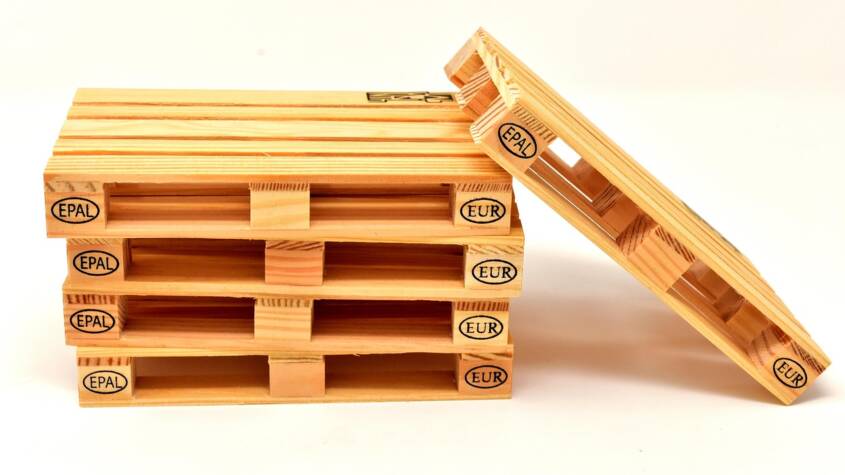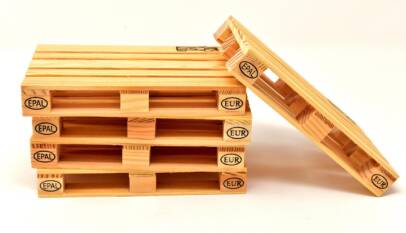Wooden Pallets Manufacturer Leading Durable and Custom Solutions for Logistics
A wooden pallets manufacturer produces sturdy platforms used for storing and transporting goods efficiently. These manufacturers focus on creating pallets that meet industry standards for strength, durability, and safety, serving various sectors like logistics, warehousing, and retail.
Choosing the right wooden pallets manufacturer ensures reliable product quality and timely delivery, which directly impacts supply chain efficiency. They often offer customization options to fit specific business needs, balancing cost-effectiveness with environmental considerations through sustainable wood sourcing.
Understanding the role and capabilities of a wooden pallets manufacturer can help businesses optimize their shipping and storage operations. This article explores what to look for when selecting a manufacturer and how their products contribute to operational success.
Wooden Pallets Manufacturing Process
The production of wooden pallets involves careful selection of raw materials, tailored designs, and precise manufacturing methods. Each step ensures the final product meets quality, strength, and customer specifications for various industrial applications.
Raw Material Selection
Manufacturers primarily use hardwoods like oak and maple or softwoods such as pine and spruce. The choice depends on the pallet’s intended load capacity and durability requirements. Wood must be dry and free from pests or defects to ensure strength.
Lumber is inspected for moisture content, usually kept below 20%, to prevent warping and decay. Sustainable sourcing and certifications like FSC are often considered to meet environmental standards. Quality wood ensures a longer pallet lifespan and safer handling.
Design and Customization
Pallets are designed based on specific industry needs, with variations in size, load capacity, and stringer or block style. Custom orders may include reinforced corners, specific wood grades, or chemical treatments for hazard control.
Manufacturers use CAD software to create precise layouts, optimizing material usage. Designs balance weight and strength to avoid overuse of wood while maintaining durability. Customization can include markings or branding for easy identification.
Manufacturing Techniques
The process starts with cutting wood into deck boards and stringers or blocks at measured lengths. Automated nailing machines or manual nails secure components, ensuring consistent assembly speed and quality.
Heat treatment, kiln drying, or chemical treatments may be applied to meet export regulations and enhance resistance to pests and fungi. Final inspection checks for defects, strength, and dimensional accuracy before packaging or dispatch.
Quality Standards and Industry Applications
Wooden pallet manufacturers must meet specific quality criteria to ensure safety and durability. Their products serve diverse industries, each with unique requirements for load capacity and handling.
Compliance with International Standards
Manufacturers often adhere to ISPM 15, a global standard for wood packaging materials that mandates heat treatment or fumigation to prevent pest infestation. This certification is critical for pallets used in international shipping.
Other relevant standards include ISO 6780 for pallet dimensions and ASTM D1185 for testing strength. Compliance guarantees pallets withstand handling stresses and maintain structural integrity during transit.
Quality control processes involve moisture testing, material grading, and inspection for defects. These steps ensure that pallets meet safety regulations and prolong their service life in demanding environments.
Industrial Uses
Wooden pallets are integral to sectors like manufacturing, retail, and logistics. Their load capacities typically range from 1,000 to 4,000 pounds, supporting a variety of goods.
Common applications include warehouse storage, bulk transport, and automated handling systems. Manufacturers tailor pallet designs for specific needs, such as heavier-duty pallets for machinery parts or hygienic pallets for food industries.
Pallets also facilitate compliance with inventory management practices, improving efficiency and reducing product damage during handling and shipping.
Kongo Tech Leading Innovation in African Technology Solutions
Kongo Tech specializes in developing innovative digital solutions tailored to African mark…










